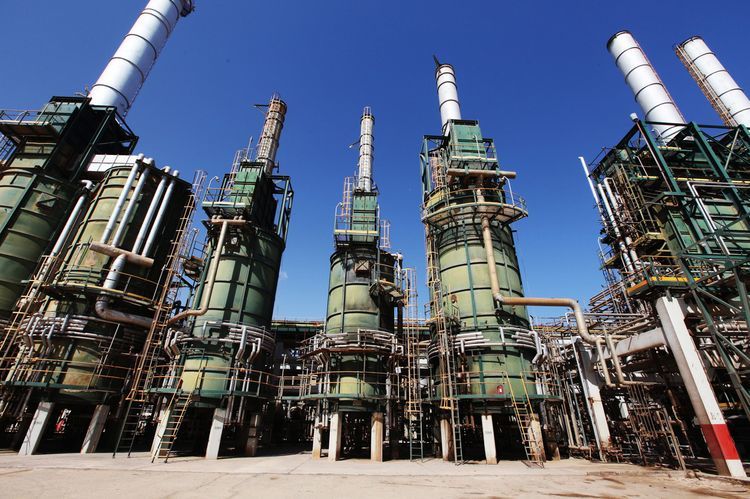
The Libyan National Army’s (LNA) decision to halt exports from a number of ports brings more pressure to bear on the Tripoli-based Government of National Accord (GNA) but does little to upset the international oil market.
This is to the benefit of the LNA. If it had caused prices to increase, it would have triggered more of a response from the US.
A lack of drive to intervene from the international community provides some leeway for the head of the LNA, General Khalifa Haftar, to press ahead with his plans. He has shown little patience for a political solution, preferring to rely instead on force. This has been seen mostly clearly in his assault on Tripoli, which began in April 2019 and has made slow progress, ignoring potential alternatives.
“The blockade sets the stage for a new offensive, with major quantities of weapons being provided to east Libya, in response to the Turkish intervention in west Libya,” the Clingendael Institute’s Jalel Harchaoui said to Energy Voice. “Once LNA forces renew their offensive into Tripoli, perhaps managing to enter downtown this time around, then the Central Bank of Libya (CBL) will come back into play. The aim of Haftar and his foreign backers is to precipitate a change in the leadership of the CBL in Tripoli.”
Verisk Maplecroft’s MENA analyst Hamish Kinnear said that the base case would be for the blockade to be lifted by the end of next week, “with the possibility that it could drag on for one to two months”. Kinnear also highlighted the importance of the CBL, and the National Oil Corp. (NOC), noting that stopping the flow of revenues would have an impact on both sides.
The CBL is believed to be paying salaries to some fighters from the GNA and the LNA.
Political stakes
This oil blockade followed the January 13 meeting in Moscow, backed by Russia and Turkey. The LNA has received some support from Russia, while the GNA signed a deal with Turkey in November 2019. The blockade was launched on January 18, the day before international talks were held in Berlin.
“The Russian-Turkish peace talks were mishandled,” said Kinnear. “Russia excluded the Emiratis and the Egyptians, both backers of Haftar, while it also agreed to recognise Turkey’s maritime claims.”
The GNA and Turkish deal of late last year secured military support for the Tripoli government, in addition to establishing a new maritime border. The latter point proved to alienate the excluded eastern Mediterranean states.
Harchaoui also noted the discontent for the United Arab Emirates as a result of being excluded from the Moscow meeting. Following this snub, he said, plans began for the oil blockade. Triggering this stoppage just before the Berlin conference “was not coincidental. Obeying a logic of blackmail, it served to set the atmosphere before talks began.”
Details
The Zawiya, Zueitina, Hariga, Brega, Es Sider and Ras Lanuf ports are under force majeure. Once storage at these facilities has filled, the National Oil Corp. (NOC) will have to halt production from fields.
Full month production to date has been 820,000 barrels per day, according to OilX. Should the ports remain blocked, the average will fall to 690,000 bpd.
A note from Vortexa said 75% of loadings in the first half of January, before the port stoppages, had been loaded onto Aframax tankers and delivered within the Mediterranean region, with Italy and Spain taking the top spots. Alternatives to Libya’s light sweet might come from Algeria, Azerbaijan, Nigeria and the Caspian.
The six ports shuttered as a result of the LNA action has taken around 900,000 bpd of exports offline, Vortexa said.
OilX considers Hariga to have the lowest stock buffer and so would be the first to stop receiving flows.
The port is the furthest to the east on Libya’s coastline and is operated by the Arabian Gulf Oil Co. (AGOCO), a subsidiary of NOC. The Sarir and Messla fields, which can produce around 225,000 bpd, are linked to Hariga.
Price timing
Haftar and the LNA’s decision to impose the blockade now is much better timed than the mid-2018 shuttering of exports. Globally, the oil balance was tighter in 2018, with demand higher in the summer. This time around, amid a backdrop of gloomy Chinese demand and US production, price has been much less reactive.
The response from major powers, most notably the US, has been muted. US Secretary of State Mike Pompeo in comments following the Berlin conference expressed the “hope that [the blockade] will be opened up as a result of this conversation”, going on to call for a “political solution”.
Verisk Maplecroft’s MENA analyst Hamish Kinnear noted there was little sense of urgency in response to the current blockade, “unlike in July 2018, when there was more uncertainty over oil prices and whether Iranian sanctions waivers would be granted. The US was much more reactive in forcing Haftar to back down in that case.”
Triggers for US involvement in Libya are the oil price and terrorism. Absent these, and the world’s policeman is unlikely to become involved.
Given the difference of opinions from those who are involved, there is unlikely to be an international consensus, which puts the ball in the court of those who favour “the logic of appeasement”, said Harchaoui. “The factions backing Haftar do not care about the consequences on the oil market or the price, they have a single minded focus on one main battle, which is for control over the CBL.”
